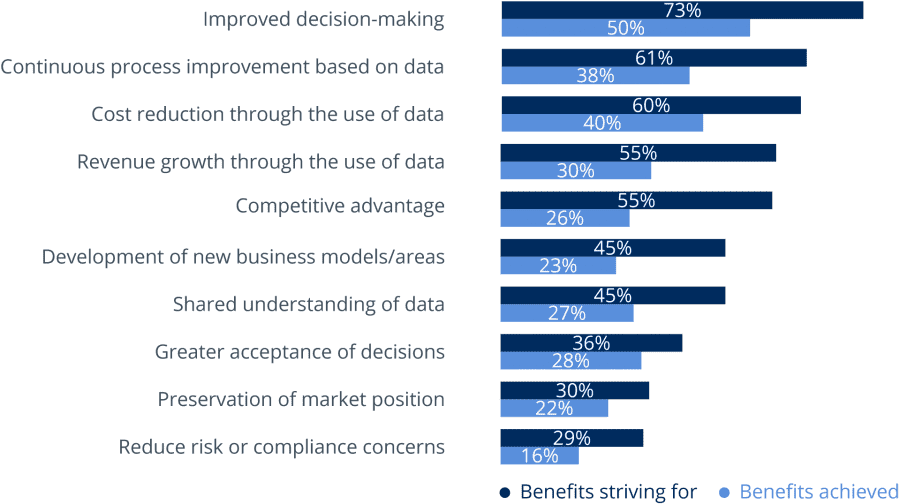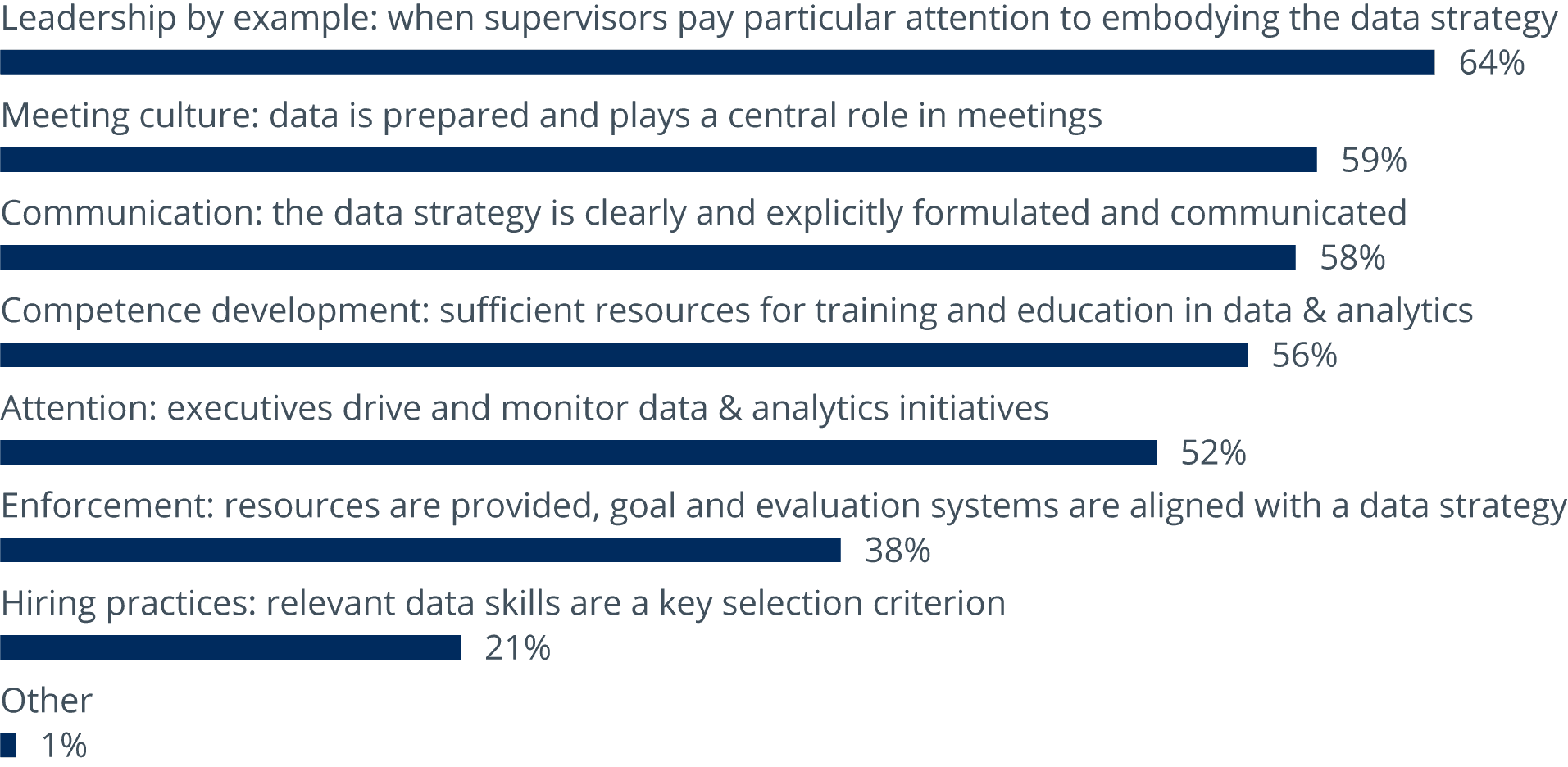BARC published its topical survey “BARC Data Culture Survey 22”
BARC (Business Application Research Center) today published the results of its topical survey “BARC Data Culture Survey 22 – How To Shape the Culture of a Data-Driven Organization”. Based on a user survey of 434 companies, the study examines the benefits companies are striving for when implementing a data culture as well as initiatives that prove to be valuable steps on the way to a data-driven company. The study is available for download free of charge thanks to sponsorship by Alation, Board, Collibra, Crate.io, Five1, Snowflake and Tableau.
- Compared to data from 2014, the share of businesses with partially or purely data-driven decision has risen from 14 percent to 34 percent in 2021.
- Improved decision-making, process improvements and cost reduction are the most tangible benefits of data culture.
- Companies have identified a range of data leadership measures that are helpful in order to implement data culture successfully.
According to the new BARC survey, data-driven decision-making is on the rise: Compared to data from 2014, decisions based on data are more common now (rise from 14 percent to 34 percent). Conversely, the proportion of companies making decisions purely or predominantly based on experience or gut feeling declined from 58 percent in 2014 to now 19 percent. In addition to the growing importance of data for decision-making, the survey records a high emphasis on data as an asset and as a general enabler for improved processes as well as revenue and cost-saving efforts.
The Return on Investment of Data Culture
Respondents to this survey are striving for common goals, such as cost reduction, revenue growth and competitive advantage. But can these goals be achieved with an improved data culture? For many organizations, this is certainly true. A good proportion of the companies surveyed have improved their decision-making, reduced costs and improved their processes with the help of data. (see Figure 1).

“Data-driven culture is essentially part of modern corporate culture in the 21st century. It is not only fundamental to the success of companies’ data & analytics strategies. Also, do not underestimate the value of an innovative workplace. Fewer bottlenecks, resulting from better processes, and comprehensible, fact-based decisions can increase motivation.”, said Dr. Carsten Bange, BARC founder and co-author of the study. “Also, young talent is often itching to apply newly-learned data skills. The motto here is – in an all-too-real sense – “use it or lose it”.”
Helpful Measures to Implement a Data Culture
But what helps companies to transition from a culture of gut feeling to a data culture? The study highlights a range of measures and valuable steps companies can take. Especially, measures from the field of data leadership were examined (see Figure 2). In particular, leading by example and adopting a data-driven meeting culture are measures that can be applied immediately and with no grander strategizing required. Measures such as clear communication and competence development require more effort and planning. They are no less important but are likely to have a greater impact when thoroughly considered and carefully planned.

About The Survey
“BARC Data Culture Survey 22 – How To Shape the Culture of a Data-Driven Organization” is a topical BARC survey assessing the benefits of a data culture that companies are striving for or have already achieved as well as data culture measures they assess as helpful. The study is based on a worldwide survey of 434 companies of various sizes and industry sectors. The authors of the study are Dr. Carsten Bange, BARC founder and Nina Lorenz, Analyst for Data & Analytics at BARC.
Click here to view the infographic and download the full study from the sponsor’s website.
